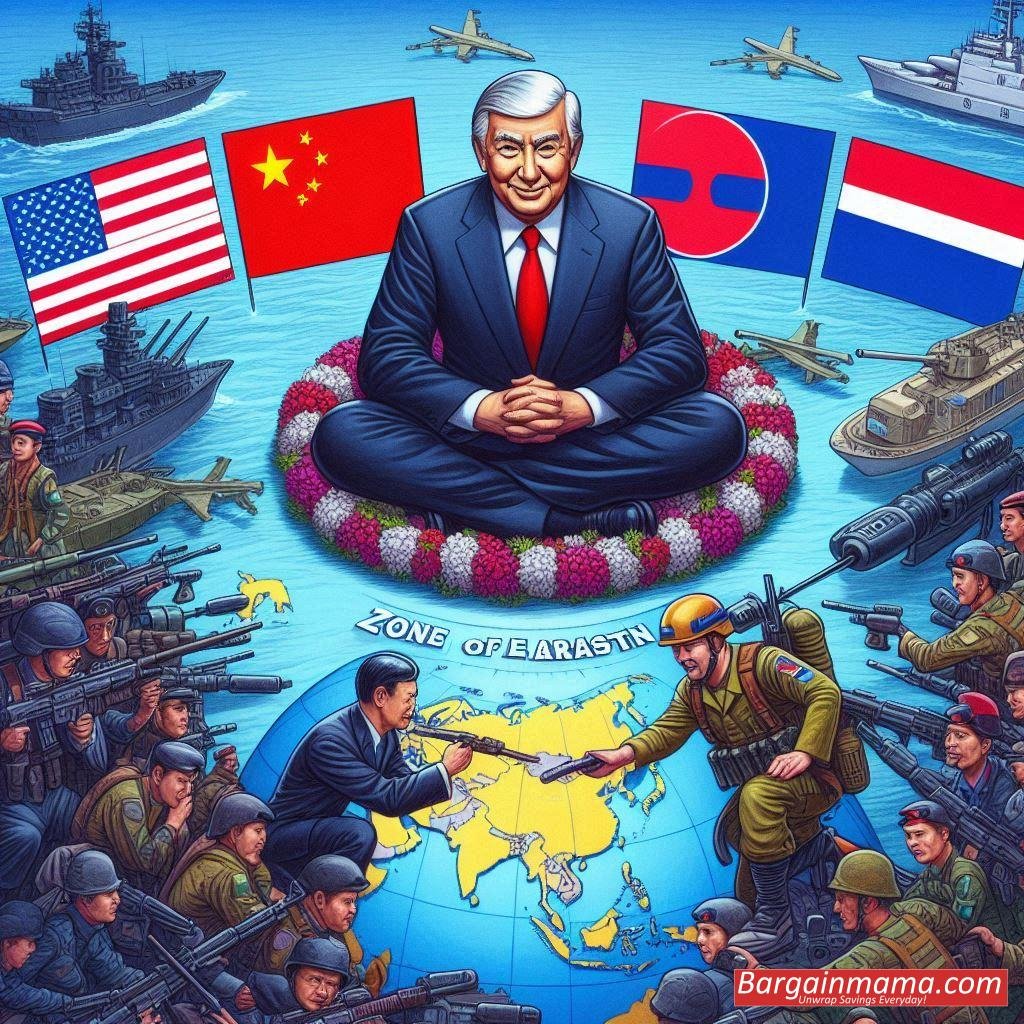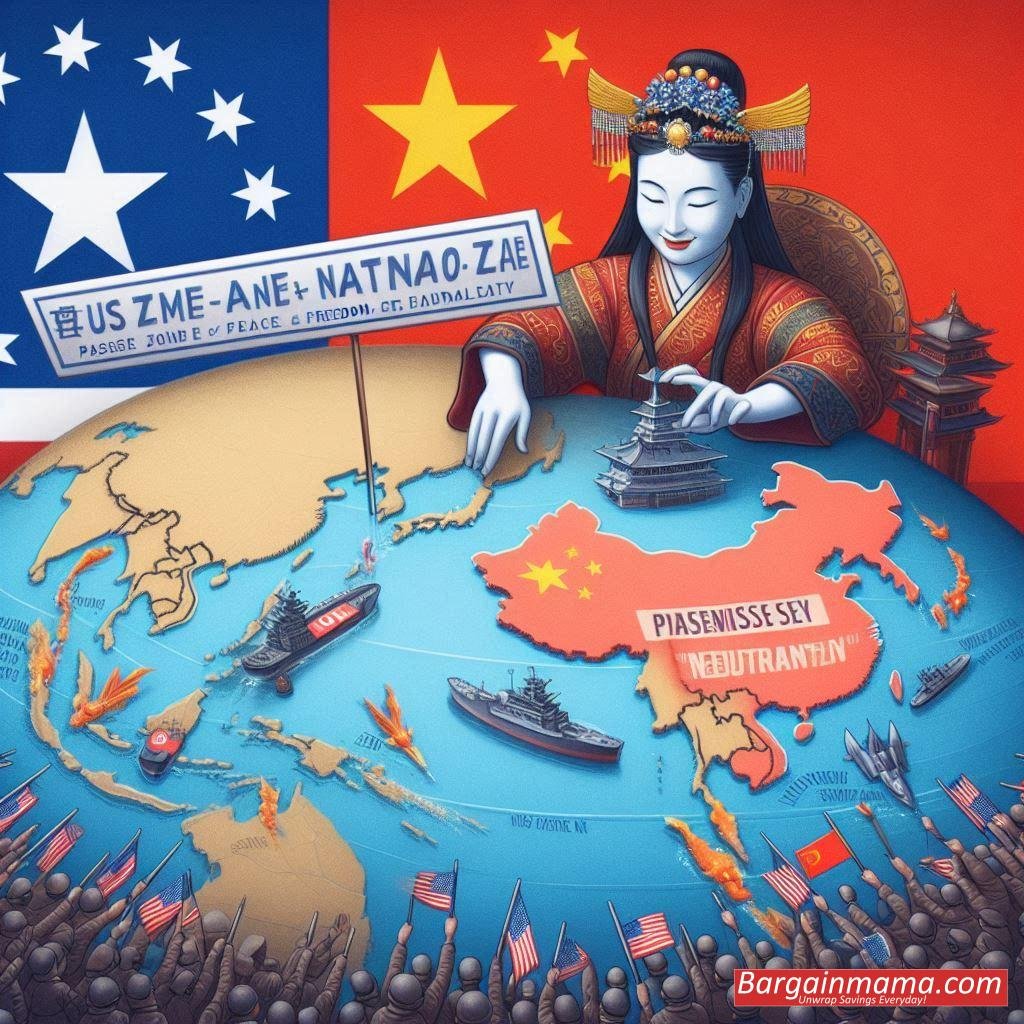Top Chinese diplomat Wang Yi has made a key step in the midst of rising tensions between the US and China: he has urged South-east Asian nations to oppose any “external interference” in the South China Sea and other hotspots in the area by the US and NATO. Speaking at an ASEAN foreign ministers’ meeting in Laos, Wang emphasised China’s position on the autonomy of the area and urged the Association of South-east Asian Nations (ASEAN) to maintain its guard against pressures from the West.
Increased Tensions in the Sea
Wang made these comments at a time when China and the Philippines, one of the founding members of ASEAN and one of the US’s longest treaty partners in Asia, are experiencing increased maritime tensions. The South China Sea has been a disputed region with conflicting territorial claims, despite being an important maritime route and resource-rich area. China’s aggressive claims, symbolised by the “nine-dash line,” conflict with those of the Philippines, Vietnam, Malaysia, and Brunei and span almost the whole South China Sea.

Divergent Reactions from ASEAN
Following a three-day meeting, the ten ASEAN members released a statement expressing “concerns” about the increasing tensions. This declaration brought to light the profound differences inside the bloc over how to handle Beijing’s domination and balance economic relations with China’s growing aggressiveness.
As noted by Maria Thaemar Tana, a non-resident fellow at the Stratbase ADR Institute in Manila, South-east Asian nations are hesitant to openly oppose China but are also careful about being overly reliant on it. Because economic and security interests are intimately entwined, regional politics are complicated, as seen by this delicate balancing act.
Attacks against NATO and the US
Wang Yi explicitly attacked the US-led NATO, citing it as the main foe of Indo-Pacific peace and stability. He said that the “Indo-Pacific strategy” adopted by the US exacerbates security issues and runs counter to the region’s long-term objective of peace and development. Wang urged ASEAN to reject such outside meddling, cautioning that NATO’s action would lead to conflict and a rise in hostilities.
Wang emphasised the significance of ASEAN’s reputation as a region of independence, peace, and neutrality during the ASEAN Regional Forum. He emphasised the need for an open, inclusive, ASEAN-centered regional architecture that is run by discussion and consultation rather than outside intervention.
The War of Words between the US and China
In reaction, China’s “escalating and unlawful actions” in the South China Sea were denounced by US Secretary of State Antony Blinken. The ongoing geopolitical competition was further highlighted by the bilateral discussions between Wang and Blinken that took place outside of the meeting. They brought up issues of mutual concern, such as Taiwan and the South China Sea, underscoring the increasing hostility between the two countries.

Localised Responses
The European Union, North Korea, South Korea, Japan, India, Australia, and Russia were present at the ASEAN foreign ministers’ conference in Vientiane. ASEAN was clearly divided, even in spite of Wang’s appeal for unanimity against outside meddling. In contrast to Wang’s argument, South Korean Foreign Minister Cho Tae-yul highlighted the value of a rules-based order and freedom of navigation in the South China Sea.
Retno Marsudi, the foreign minister of Indonesia, issued a warning against the dominance of smaller nations by major powers, echoing worries about growing rivalries and the possibility of catastrophic miscalculations. Her remarks are indicative of a larger fear among ASEAN members that they would be used as puppets in the US-China competition.
Global Consequences
Emeritus professor of politics at the University of New South Wales Carl Thayer emphasised the growing division of the world order into two antagonistic blocs: the US and its allies and the tight Russia-China cooperation. It is anticipated that this polarisation would result in increasing European naval presence in the South China Sea as well as enhanced collaboration between the US, Japan, Australia, and South Korea. Due to its internal conflicts, such events may erode ASEAN’s prominence in regional affairs.
Current Conflicts and Diplomatic Efforts
Cambodia and Laos obstructed the Philippines’ effort to include a recent incident near the disputed Second Thomas Shoal in the ASEAN communiqué, highlighting internal conflicts within the organisation. Vivian Balakrishnan, Singapore’s foreign minister, voiced worries about the growing US-China rivalry and the escalating hostilities between Beijing and Manila. He emphasised the necessity for South-east Asia to continue to be a “oasis of peace” free from political pressure, while also acknowledging the significant obstacles to ASEAN’s unity.
Final Thoughts
The growing geopolitical conflict in the Indo-Pacific is highlighted by China’s demand that ASEAN oppose US and NATO actions. ASEAN’s capacity to stay together and autonomous will be critical as it navigates these choppy waters. Although the US-China competition is becoming more intense, ASEAN’s dedication to freedom, peace, and neutrality may be able to stabilise a globe that is becoming more and more divided.



